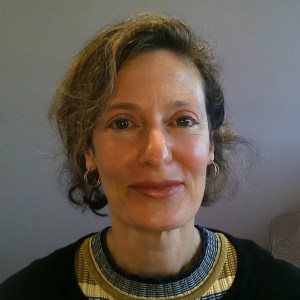I gazed in disbelief at the numbers on the pharmacy display: 146 over 82. My doctor’s office visit reading of elevated blood pressure from a week before was correct after all. Busted!
While taking on a departmental leadership role, one of the two program support staff vacated her position early in the spring semester. I found myself resentfully doing a substantial amount of busy work, previously handled by support staff, for the program I was overseeing.
I wanted to be a servant leader, yet I became weary in that role.
The remaining program staff person mentioned doing about 1.5 times her job, so adding things to her responsibilities didn’t seem to be a good option. Doing my job and covering someone else’s lasted six months until a new person was hired.
It was no wonder my blood pressure was high!
I wish I could say my stress ended in the summer when the new person was hired. Due to developing poor work patterns and compassion-fatigue I was experiencing toward students in distress, I found myself hurdling into what felt like “burnout.”
I checked the Mayo Clinic website, and it described burnout as work stress involving “a sense of reduced accomplishment and loss of personal identity.” Busted again.
Further, Mayo Clinic’s website describes psychological and physical symptoms of difficulty concentrating on tasks and high blood pressure. I exercised regularly and ate healthily, yet burnout’s psychological effects were still taking their toll.
With respect to identity, I started to question why I was in academia in a tenure track position, even after witnessing all God had done to bring me to where I am today.
The Lord provided a way out. I found a learning community for building intentionality and reducing burnout. My burnout came from feeling like I had little choice in my work tasks, and thus, my productivity was thwarted.
Now, I’m learning with mindfulness to be less self-destructive and more productive. I am recognizing the need for and setting boundaries, such as re-prioritizing daily activities to include family, time for reflection, time for God first thing in my day, and focus on more impactful work tasks.
Since it was a secular program, I had concerns that participating in this learning community might erode my faith, causing me to trust manmade strategies and structures.
But to the contrary, I find my mind and heart in a clearer space to embrace my relationship with Jesus.
For example, I am actively learning how to take captive every thought to make it obedient to Christ (2 Corinthians 10:5) and strategies to not be “anxious about anything” and focusing on things that are praiseworthy and excellent (Philippians 4:4-9).
I cannot say “I’ve arrived” as I continue in this intensive program. But my BP is normal. My department chair complimented my leadership. I am learning to answer requests with wisdom while practicing healthy ways to reduce anxiety (praying, breathing, meditating).
Moreover, I take daily time to celebrate small victories “with thanksgiving” rather than focusing on the negatives. I am enjoying my research and teaching more as there’s “nothing better… (as)…that is one’s lot” (Ecclesiastes 3:22).
I can state that the Lord continues to deliver abundantly as I work through this season and know I am in the place and time He set me to be (Acts 17:26).
Kate Fogarty
Family, Youth, and Community Sciences
University of Florida

